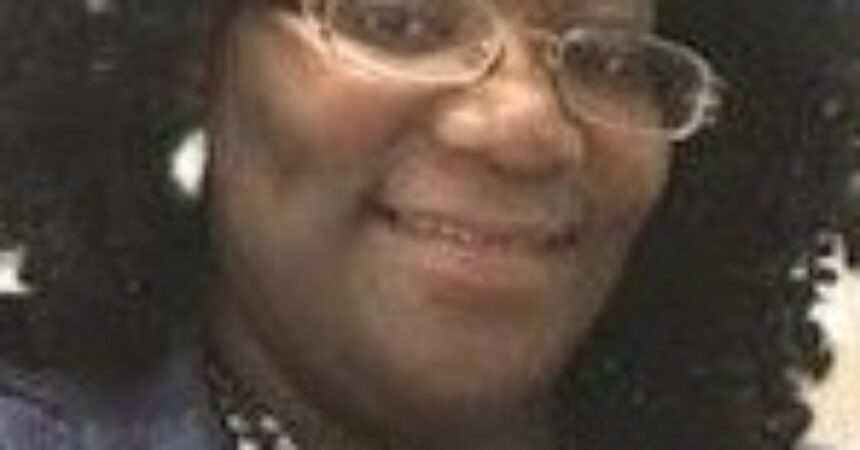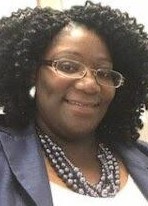
Advocates share their message beyond World AIDS Day

Joe Ward 
Sharon Joseph
By St. Clair Murraine
Outlook Staff Writer
A lot of conversation and focus were put on AIDS for one day last week, but throughout North Florida awareness of the viral condition that reached an epidemic level during the 1980’s is an everyday occurrence for advocates in the Big Bend.
Since the first case was identified 40 years ago, medications have been developed to help people with the disease live better and longer lives. Medical facilities in North Florida used World AIDS Day last Wednesday to advocate the urgency that still exists when it comes to reaching individuals with HIV/AIDS.
In Tallahassee, Big Bend Cares is known as the primary place for resources, but other health facilities are taking a grassroots approach. Neighborhood Medical Center on Orange Avenue is one of those.
As part of the county-wide advocacy, both FSU and FAMU are involved in getting the word out about HIV/AIDS, said Joe Ward, Outreach Specialist/Health Educator at Neighborhood Medical Center.
World AIDS Day is the perfect platform each year for advocates, Ward said.
“We look at World AIDS Day as a recharging day; another day that we can commemorate everything that’s happening but also recharge our batteries to go another 365 days,” Ward said. “We can’t stop. We can’t slow up because the health of our community and the health of the people that we serve depend on it.
“(World AIDS Day) invigorates the community, excites people, gets people involved. For some people who might just want to be a part of (the awareness), but didn’t know how. It’s a great day for people to come together.”
Florida Health Department statistics bear out why advocacy has to continue in the state. One of the most recent surveys show that Leon County had the seventh highest rate for HIV, while Leon County had the 13th highest AIDS rate of the state’s 67 counties.
Blacks in Leon County are nine times more likely than Whites to be diagnosed with HIV. The chance of being diagnosed with AIDS is 11 times more likely for Blacks than it is for Whites.
The numbers aren’t that much different in counties just west of Tallahassee. Bay AIDS Services Information Coalition (BASIC) Northwest Florida serves six counties, including nearby Jackson. Providing housing for people living with the disease is one of the organization’s major initiatives, said Sharon Joseph, Director of Client Service for BASIC Northwest Florida.
For years people with HIV or AIDS who didn’t have permanent housing lived with “a lot of depression, anxiety (and) sadness,” Joseph said. “Just helplessness. Now clients have something to look forward to. They know that there is a resource to help them find stability and they’re able to rent something nice.”
BASIC Northwest Florida also works with Big Bend Cares and in some cases the organizations help each other keep clients in housing if they commute in the areas.
Both are participants in the state-funded program Housing Opportunity for Persons with AIDS (HOPWA). Some patients are also eligible for gas vouchers, transportation to appointments and auto repair, Joseph said.
Tige Harrison, who is living with the disease, is a HOPWA beneficiary. Having housing helps him to live a healthier lifestyle, he said in a video testimonial.
“What I found is when I’m worried about where I’m going to live or finding a place that’s affordable; the last thing on my mind is taking my medication for HIV,” Harrison said. “Being stable in a home environment is a big encouragement for me to get back on my medication (and) to stay on my medication.”
Both Joseph and Ward have seen changes in the way society reacts to HIV/AIDS survivors. However, stigmas and myths about the epidemic still exists, they said.
“There is still stigma, but you don’t have to be in that shell anymore because of your status,” Joseph said. “More people are feeling more comfortable just sharing their status.”
One of the biggest myths is ways that HIV/AIDS could be contracted, Ward said, explaining that it’s a blood borne disease. He added that blood, vaginal fluid, semen and breast milk are the known ways that the disease is transmitted.
During the celebration of World AIDS Day last Wednesday, some survivors shared their stories. Others attended awareness events.
Neighborhood Medical Center featured a showing of the movie “Life Support” at the Richardson-Lewis Building. Prior to the movie, a support organization held its annual candlelight vigil; doing so virtually this year.
Delivering the same message is an important part of what advocates do, said Ward. It is also important for them to keep pace with social changes.
“We do our best to keep a pulse on the community that we serve,” he said. “As the community changes and evolves, we make sure that the services we provide change and evolve. One of our main components is being able to connect with our community and if we can’t connect to the community they won’t allow us to serve them so we make sure our information is relevant.”







